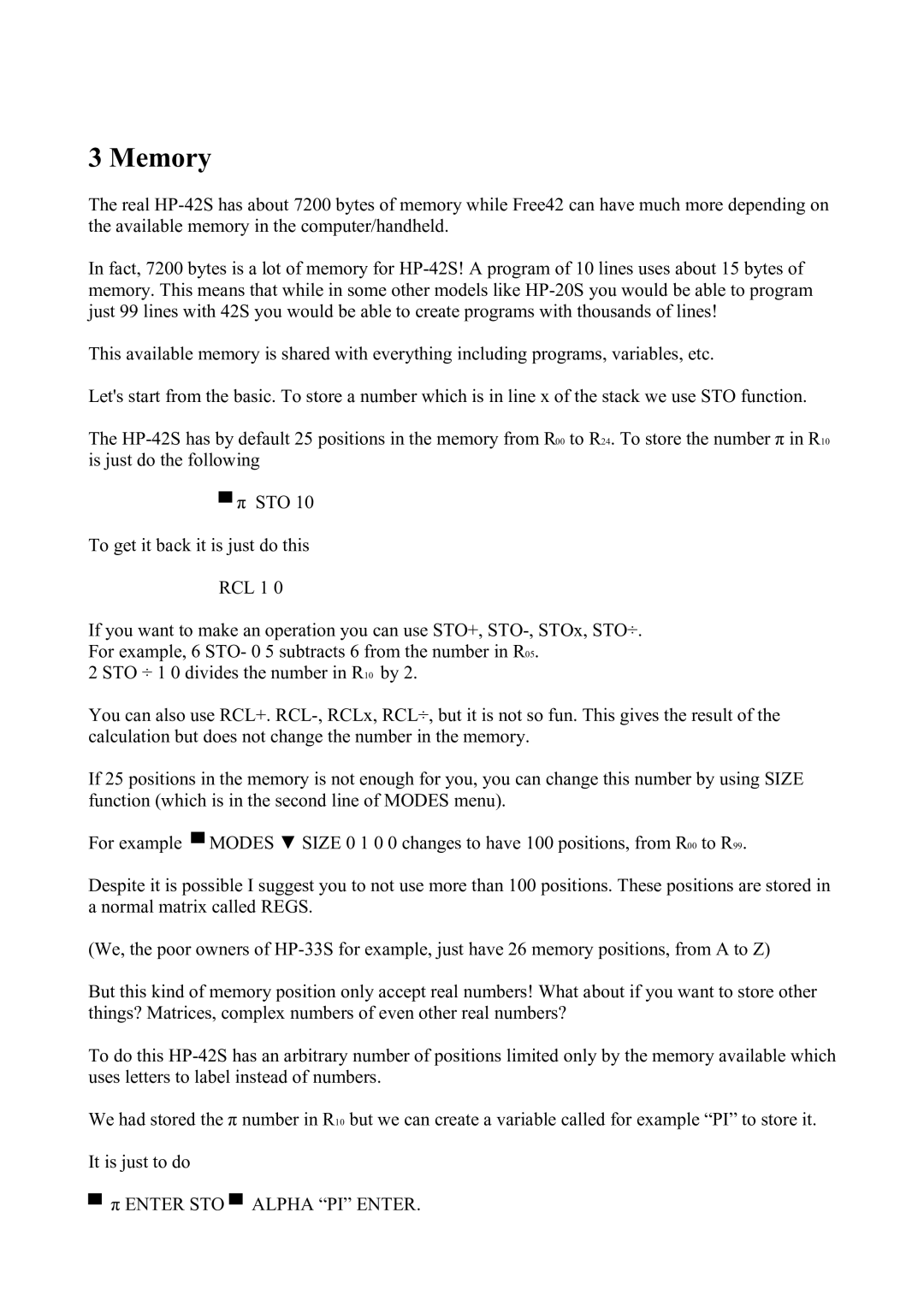3 Memory
The real
In fact, 7200 bytes is a lot of memory for
This available memory is shared with everything including programs, variables, etc.
Let's start from the basic. To store a number which is in line x of the stack we use STO function.
The
▀π STO 10 To get it back it is just do this
RCL 1 0
If you want to make an operation you can use STO+,
2 STO ÷ 1 0 divides the number in R10 by 2.
You can also use RCL+.
If 25 positions in the memory is not enough for you, you can change this number by using SIZE function (which is in the second line of MODES menu).
For example ▀ MODES ▼ SIZE 0 1 0 0 changes to have 100 positions, from R00 to R99.
Despite it is possible I suggest you to not use more than 100 positions. These positions are stored in a normal matrix called REGS.
(We, the poor owners of
But this kind of memory position only accept real numbers! What about if you want to store other things? Matrices, complex numbers of even other real numbers?
To do this
We had stored the π number in R10 but we can create a variable called for example “PI” to store it.
It is just to do
▀ π ENTER STO ▀ ALPHA “PI” ENTER.
